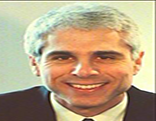Prof. Jon Whitman is a medievalist whose work explores the interplay of intellectual and imaginative changes from antiquity to the modern period.
He received his B.A. (summa cum laude) from Columbia University; his B.Phil. from the University of Oxford; and his A.M. and Ph.D. from Harvard University.
In addition to teaching at universities in the United States and Israel, he directed for many years the Center for Literary Studies of The Hebrew University of Jerusalem. He has held appointments as a Sesquicentennial Associate of the Center for Advanced Studies of the University of Virginia; a Fellow of the National Endowment for the Humanities; a Fellow of the Institute for Advanced Studies of the Hebrew University; and a Fellow of the Japan Society for the Promotion of Science.
One of the focal points of his research has been the process by which texts acquire changing meanings in allegory. He is the author of Allegory: The Dynamics of an Ancient and Medieval Technique, co-published by Oxford University Press and Harvard University Press in 1987; the editor of Interpretation and Allegory: Antiquity to the Modern Period, published by Brill in 2000; and the author of a range of articles on major allegorical texts and movements.
Another focus of his research has been the relationship between shifting forms of literary expression and varying perspectives on time and history, with a particular emphasis on the development of romance. His studies of romance and related subjects have appeared in New Medieval Literatures, MLN, and a variety of other settings. For an article in Arthuriana he received the James Randall Leader Prize for the outstanding article in the journal that year. A collective study that he edited, Romance and History: Imagining Time from the Medieval to the Early Modern Period, was published by Cambridge University Press in 2015.
A major subject of his current research is the intersection between changes in attitude toward scriptural language and critical theories of imaginative expression. With the support of a grant from the Israel Science Foundation, he is presently conducting a multiyear research project entitled "The Literal Sense: Scriptural Interpretation, Poetics, and Historical Change."
Over the years his university courses examined subjects ranging from philosophic and literary developments in the Middle Ages; to works by major English authors (including Shakespeare and Milton); to formative texts in broad critical categories (epic; romance; allegory; lyric); to strategies of style (including features of political prose from the eighteenth to the twentieth century); to literary theory from antiquity to modernity. During his affiliation with The Hebrew University of Jerusalem, where he is now emeritus, he taught in the Department of English, in the “Avnei Pina” (Cornerstone) program, and in “Amirim” (Interdisciplinary Honors Program in the Humanities).
As an invited speaker he has given presentations at Cornell University, the University of Bologna, the University of Oxford, the University of Pennsylvania, Yale University, and other institutions. In recent years he was one of the keynote speakers in China at a summer institute associated with Renmin University of China; he presented the Faber Lecture for the Committee on Renaissance and Early Modern Studies at Princeton University; and he gave invited lectures at the University of Cambridge, where at Trinity College he was also a Visiting Scholar.
In speaking by invitation to audiences with diverse specialties, as in an early keynote lecture at the University of Warwick and a recent keynote presentation at an international conference at the Hebrew University, he has highlighted far-reaching movements in thought and expression that pass beyond particular works and languages. The subjects of his current projects—extending from the comparative poetics of Scripture and literature, to the history of sympathy in late medieval European imaginative writing, to the relation between verbal and visual arts in the nineteenth-century Arthurian revival—reflect the interdisciplinary emphasis of his work at large.

